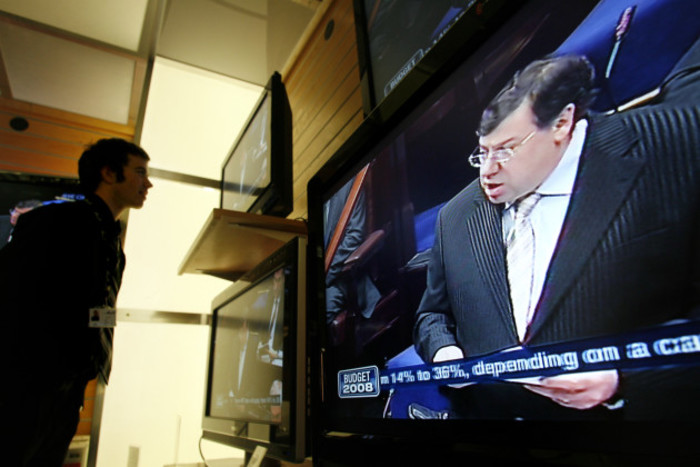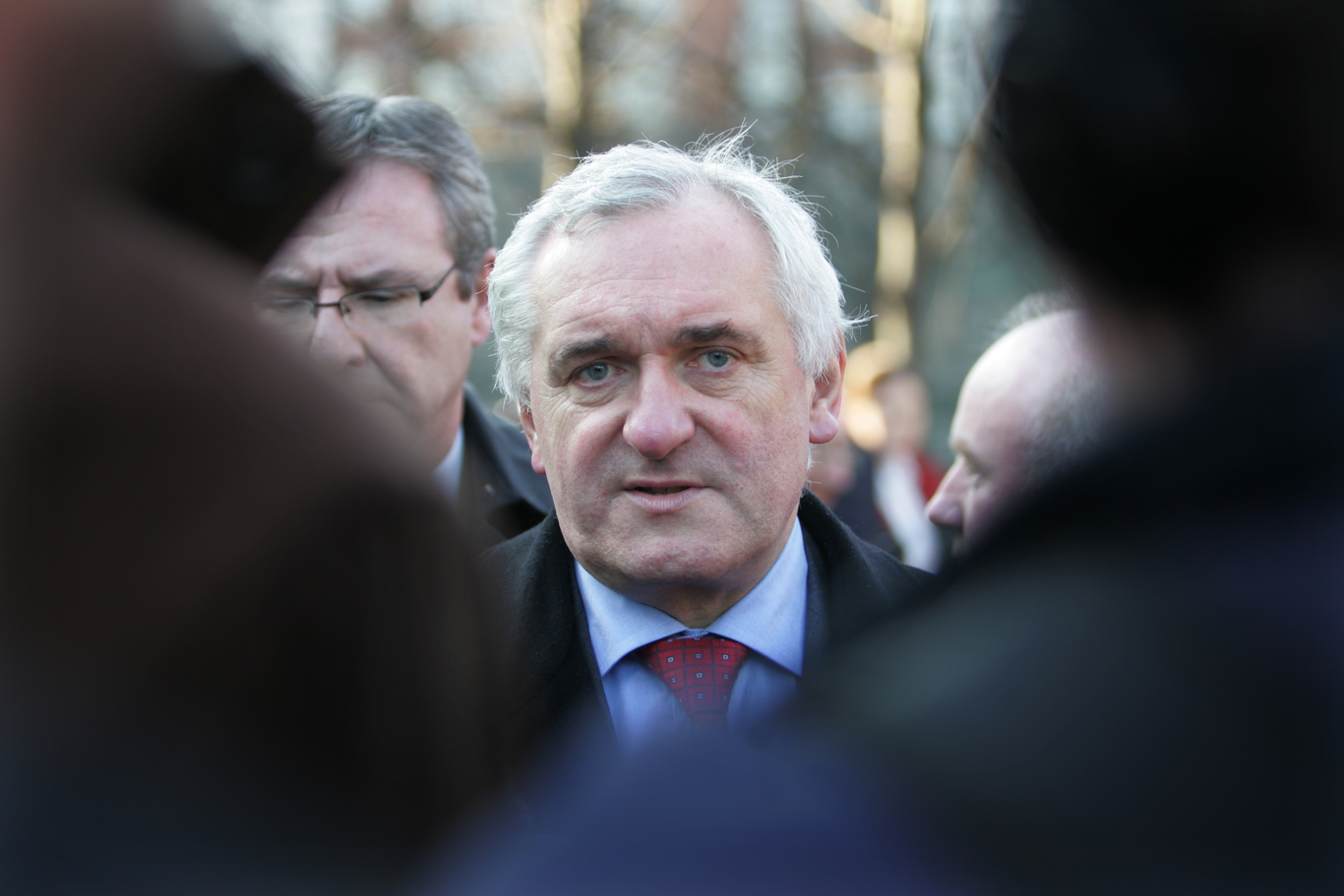A decade on, here's how the last Bertie-era budget compares to the 2018 edition
We look back at the dying days of the Celtic Tiger.
IN DECEMBER 2007, then-tánaiste and minister for finance Brian Cowen delivered the last of the ‘boom-time’ budgets – but with the global financial system already creaking at the seams, the mood wasn’t exactly buoyant.
In his address to the Dáil, Cowen – who was considered the ‘taoiseach-in-waiting’ at that stage – said Budget 2008 was being presented “against a challenging economic backdrop”.
“The global economy is beset by uncertainties, financial markets are highly volatile and the construction sector domestically is experiencing a slowdown,” Cowen said at the time.
“Rather than adopting a conservative, cautious stance, I believe we must respond to the challenge by taking determined action and pushing ahead with renewed vigour.”
The minister predicted that Ireland’s economy would continue to grow in 2008, just at a more moderate pace than we had become accustomed to. Little did he know what was around the corner.
With Budget 2018 set to be announced next Tuesday, Fora revisits a selection of policies outlined by the government of the day – and looks at how the last of the boom-time budgets fares against the upcoming plan.
Housing
For a last hurrah of the Celtic Tiger days, Budget 2008 was not all that glitzy, mainly because the property sector was already in chaos by the time it was announced.
Unsurprisingly, opposition TDs were particularly scathing in their review of Cowen’s plan for the economy.
According to an Irish Independent article at the time, opposition party Fine Gael said the minister was presiding over “the worst decline in exchequer finances in the history of the State”, having turned a €2.3 billion surplus in 2006 into a €4.9 billion deficit.
One of the only surprise measures outlined by Cowen on the day was an overhaul of stamp duty charges at a cost of €190 million. The new regime was introduced in an effort to revive house buying and give the building sector a much-needed boost.
 Ex-Finance Minister Brian Cowen
Ex-Finance Minister Brian Cowen
Homeowners with houses valued at less than €1 million were liable to pay stamp duty of 7% with no tax due on the first €125,000. A 9% stamp duty rate was applied on the balance of house prices over €1 million.
“These progressive reforms will lead to a simplification of the system which will increase the efficiency of the housing market, boost confidence and support employment and overall economic activity,” Cowen said in his Dáil speech.
“They are the right reforms, introduced for the right reasons at the right time.”
Housing will likely be one of the main talking points in Budget 2018, with the country suffering from a serious lack of homes as well as soaring property prices and rents.
In last year’s budget, the government brought in additional tax reliefs for landlords, increasing the amount of interest deductible for residential landlords from 75% to 80%.
This is set to continue to increase in 5% installments until the full 100% is restored, so the threshold is likely to increase in Budget 2018.
There’s also a chance that today’s Finance Minister, Paschal Donohoe, will extend mortgage relief for homeowners who bought a home between 2004 and 2012.
 Minister for Finance Paschal Donohoe
Minister for Finance Paschal Donohoe
The relief was set to end by the end of this year – but the confidence and supply agreement between Fine Gael and Fianna Fáil promised to continue the measure after 2017. It’s still a mystery what, if anything, Donohoe will do to boost housing supply.
Pensions
In 2007, Cowen said the government was “very conscious of the need to protect and improve the income position of our older people”, so the contributory state pension was increased by €14 a week to just over €223.
It’s likely that the state pension will rise in Budget 2018 as well, and it’s believed to be one of the main priorities for the government – although there probably won’t be such a large hike.
Pundits have suggested that the state pension could increase by €5 a week next year to €240.
Income tax
Cowen widened tax bands and increased tax credits at a cost of €585 million. The personal tax credit for a single person was increased by €70 to €1,830 – and double that for married couples.
That compares to the current, less-generous relief of €1,650.
Taoiseach Leo Varadkar has already suggested that there may be room for income tax cuts in Budget 2018. He’s specifically eyeing up cuts to the much-loathed universal social charge and relief for middle-income earners.
However, since USC raked in nearly €4 billion last year, the tax certainly won’t disappear in one fell swoop.
Excise
You can pretty much guarantee in every budget announcement that the price of cigarettes will increase since it’s an easy target.
Cowen bumped up the price of a 20 pack by 50c, the first increase since 2004, saying: “This increase serves to underline the desire of us all to curtail the consumption of tobacco in the interests of improved public health.”

The current Department of Finance tax strategy group has suggested that duty on cigarettes could increase by as much as €1 – which would increase the price of an average 20 pack to more than €12, compared to around €7 in 2007.
But there is some concern that the weakened sterling and important from Northern Ireland might undermine that measure, so the increase mightn’t be as dramatic.
Environment
Since the Green Party was part of the 2007 coalition, the environment was heavily featured in the 2008 budget.
The programme for government at the time committed to reducing Ireland’s greenhouse gas emissions by 3% every year.
To help meet that target, Cowen changed the vehicle registration tax (VRT) system so that it was based on carbon dioxide emission ratings instead of engine size.
“Of course, the higher emitting cars will pay more, but by making sensible and informed decisions, many families could see their VRT bills reduced,” he said.
Some of the environmentally friendly measures expected to be rolled by Donohoe include a tax incentive to encourage more people to opt for electric cars.
It’s also highly likely that the government will hike taxes on diesel as part of a global effort to make the fuel less attractive.






